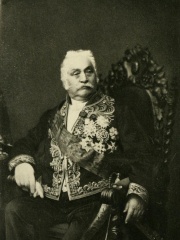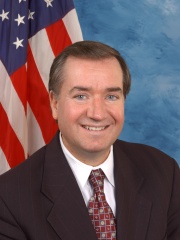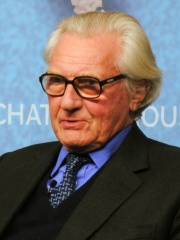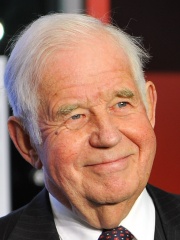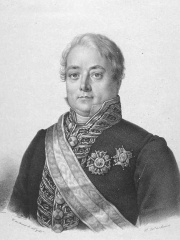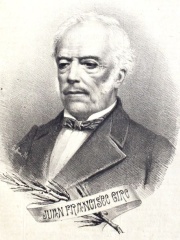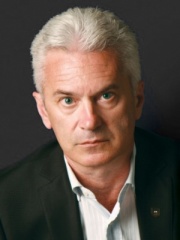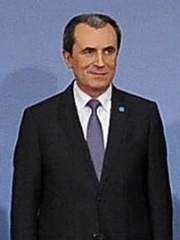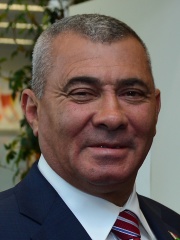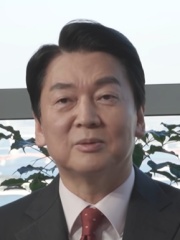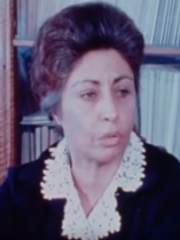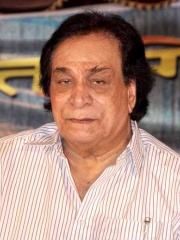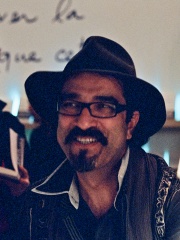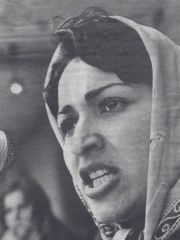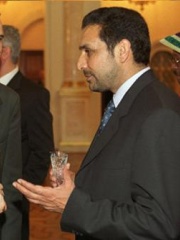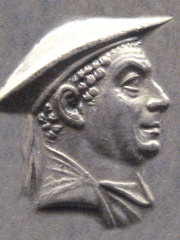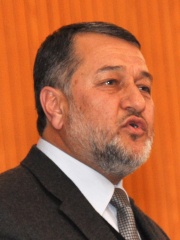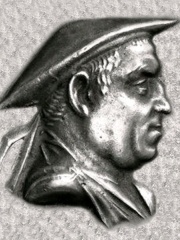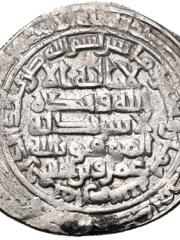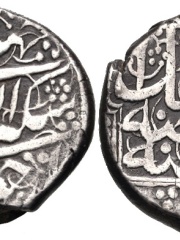POLITICIAN
Hussain Hotak
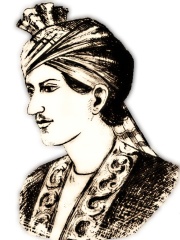
 Hussain Hotak
Hussain Hotak
Shah Hussain Hotak (Pashto/Dari: شاه حسين هوتک; died after 25 March 1738) was the fifth and last ruler of the Ghilji Hotak dynasty. An ethnic Pashtun (Afghan) from the Ghilji tribe, he succeeded to the throne in 1725 following the death of his brother Mahmud Hotak at the hands of their cousin Ashraf Hotak. He was also a Pashto poet. While his cousin Ashraf ruled most of Persia from Isfahan, Hussain governed Kandahar. Read more on Wikipedia
His biography is available in 15 different languages on Wikipedia. Hussain Hotak is the 15,651st most popular politician (down from 13,886th in 2024), the 127th most popular biography from Afghanistan (down from 109th in 2019) and the 88th most popular Afghan Politician.
Memorability Metrics
Page views of Hussain Hotak by language
Among POLITICIANS
Among politicians, Hussain Hotak ranks 15,651 out of 19,576. Before him are Alphonse Henri d'Hautpoul, Ed Royce, Martin Pfister, Michael Heseltine, Kurt Biedenkopf, and Javier de Burgos. After him are Juan Francisco Giró, Volen Siderov, Plamen Oresharski, Albert Camille Vital, Ahn Cheol-soo, and Stephen Barclay.
Most Popular Politicians in Wikipedia
Go to all RankingsAlphonse Henri d'Hautpoul
1789 - 1865
HPI: 54.60
Rank: 15,652
Ed Royce
1951 - Present
HPI: 54.60
Rank: 15,653
Martin Pfister
1963 - Present
HPI: 54.60
Rank: 15,654
Michael Heseltine
1933 - Present
HPI: 54.60
Rank: 15,655
Kurt Biedenkopf
1930 - 2021
HPI: 54.60
Rank: 15,656
Javier de Burgos
1778 - 1848
HPI: 54.60
Rank: 15,657
Hussain Hotak
HPI: 54.60
Rank: 15,658
Juan Francisco Giró
1791 - 1863
HPI: 54.60
Rank: 15,659
Volen Siderov
1956 - Present
HPI: 54.60
Rank: 15,660
Plamen Oresharski
1960 - Present
HPI: 54.60
Rank: 15,661
Albert Camille Vital
1952 - Present
HPI: 54.59
Rank: 15,662
Ahn Cheol-soo
1962 - Present
HPI: 54.59
Rank: 15,663
Stephen Barclay
1972 - Present
HPI: 54.59
Rank: 15,664
In Afghanistan
Among people born in Afghanistan, Hussain Hotak ranks 127 out of 177. Before him are Anahita Ratebzad (1931), Malalai of Maiwand (1861), Abdul Aziz Hotak (1700), Kader Khan (1937), Atiq Rahimi (1962), and Meena Keshwar Kamal (1956). After him are Ahmad Zia Massoud (1956), Antimachus I (-200), Sitara Achakzai (1957), Bismillah Khan Mohammadi (1961), Ismail of Ghazni (null), and Apollodotus I (-300).
Others born in Afghanistan
Go to all RankingsAnahita Ratebzad
POLITICIAN
1931 - 2014
HPI: 56.02
Rank: 121
Malalai of Maiwand
SOCIAL ACTIVIST
1861 - 1861
HPI: 55.99
Rank: 122
Abdul Aziz Hotak
POLITICIAN
1700 - 1717
HPI: 55.85
Rank: 123
Kader Khan
ACTOR
1937 - 2018
HPI: 55.66
Rank: 124
Atiq Rahimi
WRITER
1962 - Present
HPI: 55.59
Rank: 125
Meena Keshwar Kamal
SOCIAL ACTIVIST
1956 - 1987
HPI: 55.28
Rank: 126
Hussain Hotak
POLITICIAN
HPI: 54.60
Rank: 127
Ahmad Zia Massoud
POLITICIAN
1956 - Present
HPI: 54.58
Rank: 128
Antimachus I
POLITICIAN
200 BC - 160 BC
HPI: 54.19
Rank: 129
Sitara Achakzai
POLITICIAN
1957 - 2009
HPI: 54.12
Rank: 130
Bismillah Khan Mohammadi
POLITICIAN
1961 - Present
HPI: 53.26
Rank: 131
Ismail of Ghazni
POLITICIAN
HPI: 53.08
Rank: 132
Apollodotus I
POLITICIAN
300 BC - 200 BC
HPI: 53.05
Rank: 133
Among POLITICIANS In Afghanistan
Among politicians born in Afghanistan, Hussain Hotak ranks 88. Before him are Amr ibn al-Layth (null), Sultan Ali Keshtmand (1935), Ali Shah Durrani (1800), Ayub Shah Durrani (1800), Anahita Ratebzad (1931), and Abdul Aziz Hotak (1700). After him are Ahmad Zia Massoud (1956), Antimachus I (-200), Sitara Achakzai (1957), Bismillah Khan Mohammadi (1961), Ismail of Ghazni (null), and Apollodotus I (-300).
Amr ibn al-Layth
HPI: 56.80
Rank: 82
Sultan Ali Keshtmand
1935 - Present
HPI: 56.69
Rank: 83
Ali Shah Durrani
1800 - 1900
HPI: 56.33
Rank: 84
Ayub Shah Durrani
1800 - 1837
HPI: 56.02
Rank: 85
Anahita Ratebzad
1931 - 2014
HPI: 56.02
Rank: 86
Abdul Aziz Hotak
1700 - 1717
HPI: 55.85
Rank: 87
Hussain Hotak
HPI: 54.60
Rank: 88
Ahmad Zia Massoud
1956 - Present
HPI: 54.58
Rank: 89
Antimachus I
200 BC - 160 BC
HPI: 54.19
Rank: 90
Sitara Achakzai
1957 - 2009
HPI: 54.12
Rank: 91
Bismillah Khan Mohammadi
1961 - Present
HPI: 53.26
Rank: 92
Ismail of Ghazni
HPI: 53.08
Rank: 93
Apollodotus I
300 BC - 200 BC
HPI: 53.05
Rank: 94
